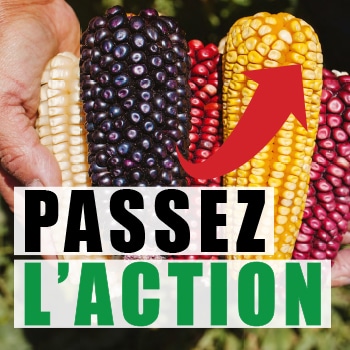GE tree currently under US government risk assessment does not work says The American Chestnut Foundation
Wednesday, December 13, 2023 – Halifax. In a major turnaround, The American Chestnut Foundation (TACF) has announced it is discontinuing its development of the genetically engineered (GE or genetically modified) American chestnut tree called “Darling 58”.(1) TACF is a collaborative partner with the State University of New York College of Environmental Science and Forestry (SUNY-ESF) which, on January 17, 2020, submitted a still-pending request to the United States Department of Agriculture (USDA) for approval to release of this GE tree into the wild. Release of this GE forest tree in the US would pose a direct threat to the future of endangered American chestnut in Canada.(2)
“The university now has a responsibility to withdraw its request for approval. This genetically engineered tree has been found to be useless a full three years after developers asked the US government to approve its release,” said Lucy Sharratt, Coordinator of the Canadian Biotechnology Action Network (CBAN), “The developers rushed this genetically engineered tree forward based on assumptions and hope rather than science and testing.”
As recently as August 2023, TACF was promoting the Darling 58 as a “revolutionary transgenic American chestnut tree with enhanced blight tolerance” for use in “restoration” of the species.(3) However, on December 8th, TACF reported that its own research shows the GE tree is not blight tolerant.(4) It is also significantly shorter and has increased mortality. TACF also announced their discovery of a “significant identity error” whereby all the pollen and trees they were using to study the tree’s performance was not derived from Darling 58 as assumed, but were from a significantly different GE tree.
“TACF irresponsibly hyped this genetically engineered tree without evidence that it worked,” said CBAN campaigner Kaitlyn Duthie-Kannikkatt, “TACF is right to disassociate itself from this dud. The future of American chestnut restoration is brighter in Canada and the US without the looming threat of this genetically engineered tree.”
Regardless of its failure to work as intended, unless SUNY-ESF withdraws their request, the USDA may soon approve open planting of the Darling 58 tree. The Chestnut Council of Canada has written twice to the USDA to express their opposition to release of this genetic engineering tree because of concerns that it will pose a cross-border contamination risk that will threaten the future of the endangered American chestnut in Canada.(5)
-30-
For more information: Lucy Sharratt, Coordinator, Canadian Biotechnology Action Network, 902 209 4906, coordinator@cban.ca ; Kaitlyn Duthie-Kannikkatt, Campaigner, Canadian Biotechnology Action Network, 204 590 6350, outreach@cban.ca
CBAN Background: The Genetically Engineered American Chestnut
NOTES:
(1) The American Chestnut Foundation. TACF Discontinues Development of Darling 58. Press Release, December 8, 2023.
(2) State University of New York College of Environmental Science and Forestry (SUNY-ESF). Petition for determination of nonregulated status for blight-tolerant Darling 58 American chestnut (Castanea dentata). January 17, 2020.
(3) The American Chestnut Foundation. Darling 58. https://web.archive.org/web/20230825203949/https://tacf.org/darling-58/
(4) The American Chestnut Foundation. Darling Performance Results. December 2023.
(5) Canadian Chestnut Council, Submission to the US Department of Agriculture, December 20, 2022.
The Canadian Biotechnology Action Network (CBAN) brings together 15 groups to research, monitor and raise awareness about issues relating to genetic engineering in food and farming. CBAN members include farmer associations, environmental and social justice organizations, and regional coalitions of grassroots groups. CBAN is a project of MakeWay’s shared platform. www.cban.ca/trees






